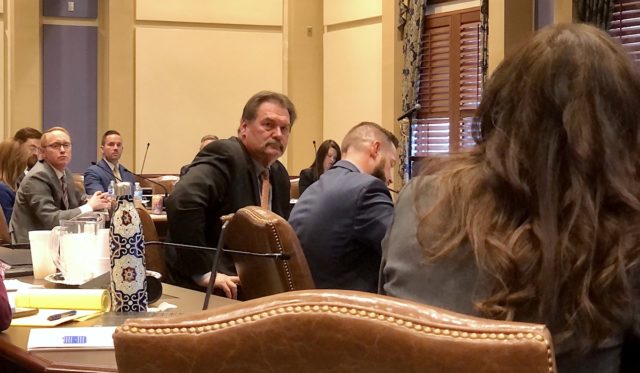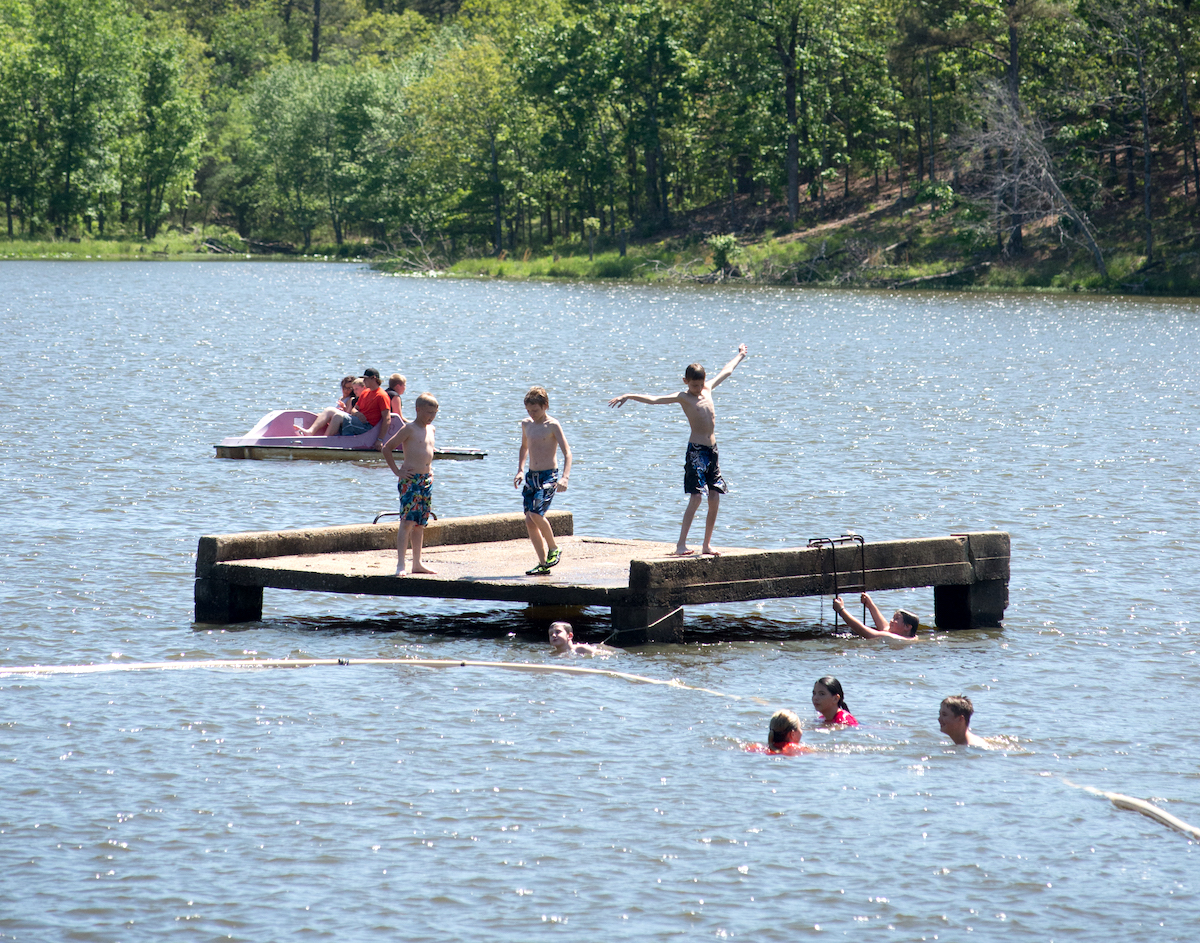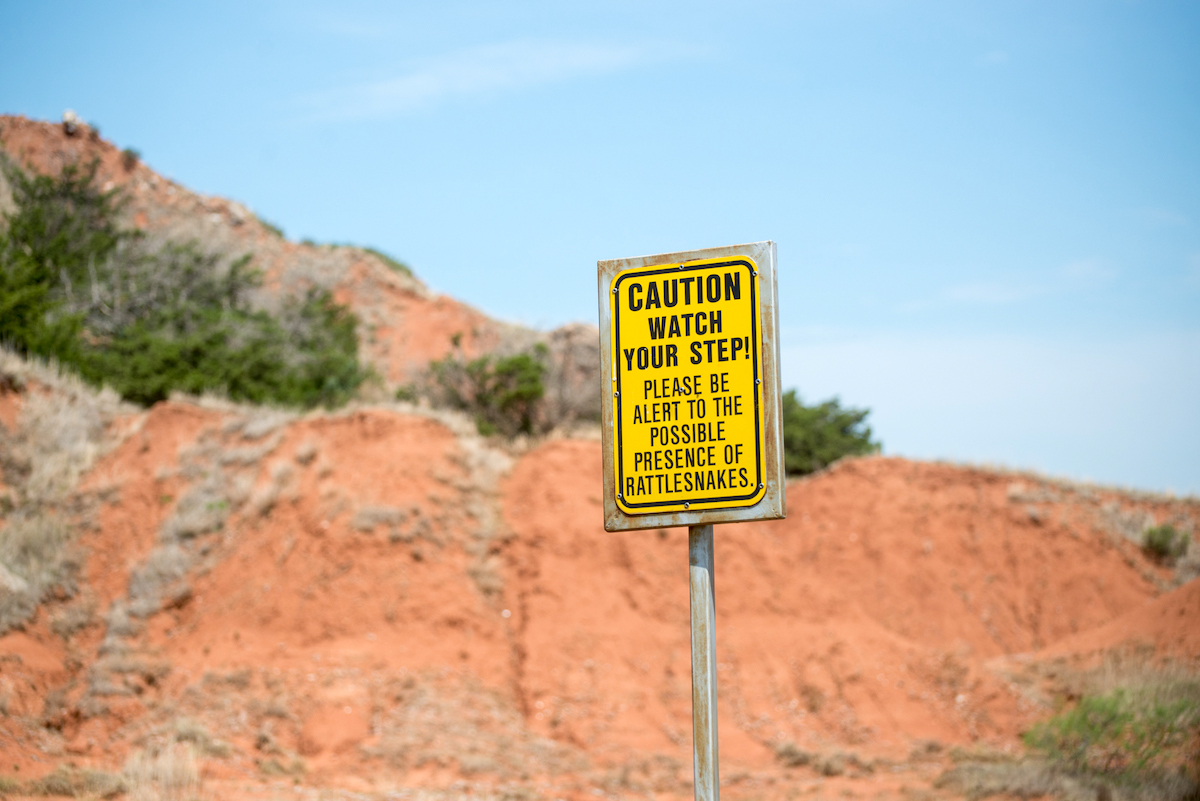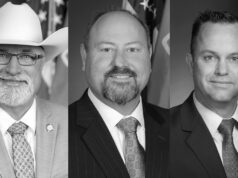

To close a two-hour meeting Thursday afternoon that featured legislators grilling Oklahoma Tourism and Recreation Department executive director Jerry Winchester about his decision to spend millions on opening a number of Foggy Bottom Kitchen restaurants in state parks, Senate Appropriations and Budget Committee Chairman Roger Thompson promised a visit to one of the controversial establishments.
“I’m looking forward to going on Sunday and eating a cheeseburger,” said Thompson (R-Okemah).
Thompson’s statement was sarcastic in nature, and it underscored lawmakers’ frustration with a new report about OTRD expenditures. The state-subsidized Foggy Bottom restaurants are closed on Sundays, and their menus promote a $14 double bacon cheeseburger named after Winchester.
Thursday’s meeting of the Legislative Office of Fiscal Transparency Oversight Committee was prompted by a 90-page LOFT report regarding a “significant growth in expenditures” at Oklahoma state parks. The contents of the report drew the ire of the gathered legislators, one of whom openly questioned Winchester’s truthfulness and asked whether criminal activity might have occurred.
Friday afternoon following the publication of this article, Oklahoma State Bureau of Investigation public information officer Brook Arbeitman told NonDoc that Oklahoma County District Attorney David Prater has requested that OSBI investigate the state park expenditures highlighted in the LOFT report. Arbeitman said OSBI has accepted Prater’s request to investigate.
The LOFT report (available here) was completed following a request by OTRD for an additional $19.3 million for capital asset maintenance at state parks — though the Legislature authorized $48.6 million in bonds for capital improvements just two years ago.
The report outlines a litany of concerns regarding the OTRD’s financial practices, including engineering expenses, the use of bond proceeds, questionable asset valuation calculations and an unusual contractual arrangement with Swadley’s Bar-B-Q to renovate and operate the Foggy Bottom restaurants inside state parks.
At the meeting, LOFT executive director Mike Jackson led a presentation of the report’s three main findings:
- Improperly valued assets are driving OTRD’s request for $19.3 million in increased funding;
- The agency’s investment strategy is negatively impacting the parks system’s financial feasibility,
- Oklahoma’s diverse park system can be improved by aligning spending to purpose.
Winchester, a former oil and gas executive hired by Oklahoma Gov. Kevin Stitt to lead the agency in April 2019, defended its financial management, questioned LOFT’s own math and argued that the report did not take sufficient account of the high but necessary costs of the agency’s upkeep obligations.
Winchester: Restaurant contract not a ‘sweetheart deal’

The report’s critique of the OTRD investment strategy highlighted an agreement in which the state has paid more than $13 million to the Oklahoma City-based Swadley’s Bar-B-Q restaurant group to operate a number of Swadley’s Foggy Bottom Kitchen restaurants in Oklahoma State Parks. That amount does not include $2.1 million to cover the restaurants’ operating losses for 2021.
According to the LOFT report, expenditures on these restaurants “exceed Parks’ estimate of the [restaurants’] replacement value multiple times” and run counter to “OTRD’s own asset management plan to reinvest in no more than one restaurant per year.”
On Thursday, Winchester said these costs were necessary, even though restaurants ranked nowhere near the top in surveys asking state park visitors what they most wanted from the parks. Winchester said the department is responsible for maintaining the facilities and, as long as they were doing so, leadership wanted to provide a decent restaurant experience — something he said did not happen when restaurants were under state management.
He said it was hard to find any anyone willing to operate restaurants in such remote locations and that at least 25 possible operators were approached for the contract. But Swadley’s was the only one willing to pursue it in the end, according to Winchester.
“I don’t think anyone would characterize this as a sweetheart deal,” he said.
He also argued that the restaurants have been a success. In 2019, when the state ran them, they operated at a loss of $564,000, he said. But losses in 2021, under Swadley’s management, had dropped to $529,000.
Rep. Ryan Martinez (R-Edmond) questioned Winchester’s account.
“You’re telling me that this offer was made to all kinds of different restaurants and vendors, saying, ‘Hey, open this operation. It doesn’t matter how you perform, how much food you sell, you’re going to have your losses covered,’ and people weren’t lining up to take that deal?” he said. “Because I’ve been around people that run restaurants, I’ve been one of them, and they’d come running. They’d be coming out in droves. Because it doesn’t matter how many customers you have and you’re getting the management fees and all that other stuff. I just have a really hard time believing that.”
After peppering Winchester with a number of questions about the restaurant deals, Martinez addressed a question to Jackson.
“Beyond this being unusual, do you have any concerns that there’s potential legal violations that happened here?” he asked.
Jackson was noncommittal.
“Criminal investigations exceed LOFT’s authority,” he said. “If we were to discover potential criminal activity, our internal procedures would require that we inform the proper authorities. And if that were to occur, we would be prohibited by law from speaking about it.”
‘Improper accounting makes it difficult to assess’

Though the Foggy Bottom restaurants took center stage at Thursday’s meeting, the LOFT report also raised broader questions about the OTRD Parks Department’s financial dealings.
The department’s estimation of its maintenance funding needs was calculated by taking 4 percent of the replacement value of all park assets — a percentage that LOFT officials said appears to be on the high end for standard accounting practices.
Winchester, who was previously an executive at Seventy Seven Energy and Chesapeake Oilfield Services, said the number was based on his experience in the oil-and-gas industry.
“That was the number that we used annually as a percentage of our assets,” he said. “And if it was a drilling rig or a piece of fracking equipment, we had to put that amount of money back in annually. I think that’s a generally acceptable number.”
LOFT also found problems with the department’s calculations prior to arriving at that 4 percent calculation. Assets in any given category were all assigned the same value — so every boat ramp was valued at $40,650, regardless of its size, and lodges at Quartz Mountain and Roman Nose were both valued at $19.45 million, though the Quartz Mountain lodge has 120 rooms and the Roman Nose lodge has only 22.
Winchester stood by the numbers, saying the lodge calculations were done based on the total number of rooms in the system, not in each lodge, and that the estimates overall were not meant to paint a detailed picture.
“It was a whole lot more important, we thought, to try to get our arms around how big the problem was and how many assets we had, versus the value of individual ones,” he said.
In general, the LOFT report faulted the department for using bad data. For instance, in Fiscal Year 2021, the department spent $5.97 million on food and catering expenses — an expense category meant for comped employee meals or department events, which, prior to 2019, ran to about $58,000 annually. The dramatic increase appears to be the result of miscategorized expenses related to the new restaurants.
“The improper accounting makes it difficult to assess the division’s financial decisions at a granular level,” Andrew Welch, a LOFT program evaluator, told legislators.
‘This raises a lot of concern about how we get information’

In its official FY 2020 strategy, OTRD stated that it would take “a decade of proper funding” to properly maintain Oklahoma’s state parks and that, if the department did not receive this funding, it would consider shutting down some state parks.
The LOFT report, however, recommended that the department’s capital expenditures be frozen entirely until a proper accounting of its assets could be completed.
After Thursday’s meeting, legislators said they were left with a number of unanswered questions.
“I’ve got a number of red tabs still within my questions,” Thompson told NonDoc, pointing to his copy of the LOFT report. “I plan to follow up with questions very directly to Tourism.”
House Appropriations and Budget Chairman Kevin Wallace (R-Wellston), framed Thursday’s meeting as the start of a process.
“I don’t necessarily agree with all the statements made by either side,” he said, “but we’ll get to a good spot in the future.”
During a press conference earlier in the day, Sen. Julia Kirt (D-OKC) said oversight of the Department of Tourism and Recreation has been lacking since the Legislature approved Gov. Kevin Stitt’s request to have hiring and firing authority over certain agency directors in 2019.
“The report very much ties some of these questionable and perhaps not defensible expenses back to the time period when the Legislature gave control to the governor over hiring and firing the director and turned the (Tourism and Recreation) Commission into an advisory body,” Kirt said. “That commission has not met since January 2020. All of the expenditures that are being highlighted as a concern have happened since that commission stopped meeting.”
Kirt said the LOFT report on state parks should spur the Legislature to amend the law and re-create a governing board of stakeholders that have authority to oversee the agency’s director.
“Transparency is important, and I think this raises a lot of concern about how we get information, how we know what is happening in agencies and how they are being overseen. All of that authority is vested in the governor now, and I think that when the Legislature decided to do that, we have to hold those agencies accountable still for the public good,” Kirt said. “I think taxpayers are very concerned about some of the contracts that have been signed and some of the expenditures that have been undertaken at our state parks.”
Read the LOFT report on state parks
(Update: This article was updated at 1:25 p.m. Friday, April 1, to include confirmation of the OSBI investigation and to correct the spelling of Andrew Welch’s name. It was updated again at 12:45 p.m. Monday, April 4, to include the correct amount of money dedicated to the Swadley’s contract so far.)




















